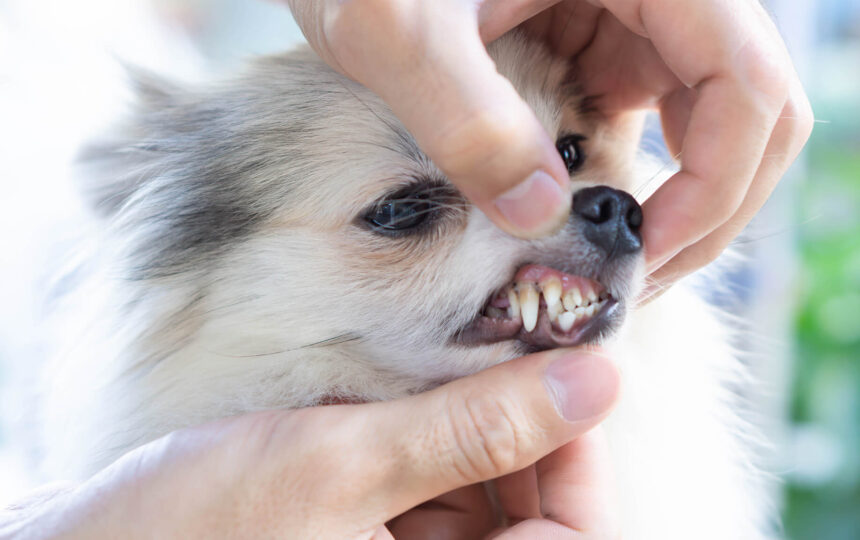Pets are like kids, we are their advocates, and as such, we strive to keep our furry companions healthy and happy. However, sometimes it can be easy to overlook potential health problems that our furry companions may be experiencing if they aren’t staring us straight in the eye. Identifying and addressing these health concerns early on can prevent them from developing into more serious issues.
This article will discuss the most overlooked pet health problems and highlight some valuable tips to keep your fur babies happy and healthy.
Poor oral health
Dental care is one of the most commonly overlooked aspects of pet sickness prevention. Many pet owners may not realize that dental health problems can have dangerous consequences for their pets.
Poor dental hygiene can lead to a buildup of plaque and tartar, which may cause bad breath, gum disease, and tooth decay. In severe cases, dental disease can lead to tooth loss and even infections that can spread throughout the body and cause serious health problems.
Unfortunately, pets can’t tell us when they’re experiencing oral pain, so it’s essential for us to commit to our pet’s dental health and take steps to prevent dental problems before they occur. Brush your dog’s teeth regularly and have a complete oral exam at least once a year to rule out anything you can’t see.
Skin bumps
Skin bumps can be a symptom of various underlying conditions, ranging from minor issues like insect bites or allergic reactions to more serious issues like skin infections or cancer.
Here is what to look for.
- Visible bumps or lumps on the skin
- Lumps that are oozing or bleeding
- Redness or irritation around the bump
- Changes in the texture or color of the skin
- Your pet may scratch or lick at the area around the bump
If you notice any of these signs, taking your pet in for a check-up is important. Your veterinarian will perform a physical examination and may recommend further tests or treatments depending on the underlying cause of the skin bump.
Obesity
Another common condition that is often not taken seriously enough is obesity. Even ten pounds too much can negatively impact your pet’s joints, internal organs, and longevity.
The obese pet is at risk of developing all sorts of health conditions like arthritis, heart disease, kidney disease, and more. Overweight and obese pets usually develop joint problems and mobility issues much sooner, regardless of genetics.
Conventional pet food, table scraps, too many treats, a lack of exercise, and hypothyroidism may lead to obesity in both dogs and cats.
The very first step in dealing with obesity is the realization of the problem. Talk to your vet if you think your pet is overweight. He will do regular body condition assessments and might suggest a diet plan for weight maintenance.
Water intake
Water intake is often overlooked as a potential health issue in pets. It is not something that is easy to monitor especially if you have multiple pets sharing a water bowl. However, adequate hydration is essential for a pet’s overall health and well-being, and insufficient water intake can lead to serious health problems.
Some common signs that your pet may not be drinking enough water include
- Dry or sticky gums
- Sunken eyes
- Lethargy or low energy levels
- Urine that is darker than usual or has a strong odor
- Constipation or difficulty passing stool
If you notice any of these signs, it’s essential to encourage your pet to drink more water. Some effective strategies include providing fresh, clean water at all times, switching to a fountain-style water bowl, and adding a bit of low-sodium broth to your pet’s water to make it more enticing.
It’s also important to keep an eye out for any underlying health issues that may be causing your pet to drink less water than usual. Some common health issues affecting a pet’s water intake include kidney disease, diabetes, and urinary tract infections. If you’re concerned about your pet’s water intake, it’s always best to consult your veterinarian for guidance and advice.
Ear infections
Ear infections are more common in dogs than cats and although some cases may require a trip to the vet, you can often prevent their occurence at home.
If your dog or cat is suffering with an ear infection you may notice the following symptoms.
- Shaking of the head
- Scratching around the head
- A foul smell
- A visible build up of wax
- Swelling and redness in and around the ear
- Whining
- Rubbing head on the floor or against furniture
Some dogs, due to their anatomy, including Basset hounds, Labradoodles, adn Chinese Star Shar Peis are more prone to ear infections These dogs benefit from regular ear cleaning and drying when wet.
For cats, mites penetrating the ear canal are often the cause of ear problems resulting in infection. If you suspect mites, a visit to your vet is beneficial for treatment.
If your dog is prone to infections or you notice an odor or symptoms of an ear problem, gently wipe out the inside of the ear using a clean cloth and a gentle ear wash solution. It is unnecessary to clean out cats’ ears unless you notice a discharge or smell an odor.
Flea and tick bites
Skin problems caused by ticks and fleas, can develop into concerning healthy problems if left untreated.
When a tick or flea bites, it injects saliva into the skin and feeds on blood. This may cause issues ranging from mild allergic reactions to serious illnesses.
Signs that your dog is battling fleas or ticks include flea droppings in the fur, flea eggs in the fur, excessive scratching or licking, scabs, or hot spots on the skin.
Ticks and fleas can potentially carry diseases. If you live in an area where they are present, regular flea and tick prevention is beneficial and can prevent serious problems from occurring.
Perform regular checks on your pets for fleas and ticks, especially if they re common in your area.
Achy joints and arthritis
Arthritis is a degenerative condition that affects joints and causes stiffness, pain, and discomfort. It can be incredibly challenging for aging pets or those who have had injuries or surgeries.
Here are some signs that your pet may have achy joints
- Slower to get up from lying or seated position.
- They are having more difficulty with everyday activities like getting up on the couch or going up the stairs, etc.
- Reluctance to exercise and not enjoying games and walks
- Lameness or stiffness, especially after long periods of rest
- Holding the limb up or holding the limb funny
- Licking at joint
- Swollen joints
- Muscle loss
- Yelping when touched
- Increased irritability and behavioral changes
If left untreated, arthritis and joint pain can significantly reduce your pet’s quality of life, leading to reduced mobility, weight gain, and other related health problems. However, with proper care and management, pets with arthritis can lead happy and comfortable life.
Some effective remedies for achy joints and arthritis include dietary supplements such as turmeric, exercise, and weight management. It’s important to work closely with your veterinarian to develop a personalized treatment plan that fits your pet’s specific needs and circumstances.
Check-in with your pet often
Keep a close eye on your pet for anything strange, and take the time to conduct a thorough health scan at least once a month, noting anything that seems off.
- When you groom your pet, check for allergies, rashes, or signs of infection such as redness, tenderness, or inflammation on the skin.
- Avoid feeding highly processed, conventional pet foods as they contain toxic chemical preservatives, fillers and wheat which animals are not used to digesting. Instead, consider a raw food diet,that supports the immune system and provides energy for healing.
- Provide mental stimulation and age-appropriate exercise daily.
- Vet annual examinations are a key part of preventive care. These vet checkups allow you to track your pet’s growth and discuss any questions about the pet’s health with your vet.
- If your pet is showing anything out of the ordinary or seems in distres – don’t put it off – seek treatment to ensure the issue does not become serious.
Having a four-legged companion is much more than just having a loyal friend. Even their mere presence provides much more than just companionship. You can’t make your furry pal live forever, but you can help your pet live the healthiest, happiest, and most satisfying life possible.






